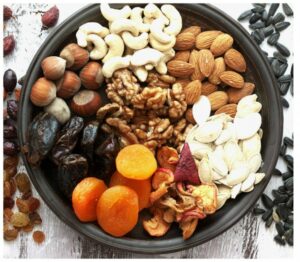Where Can You Pick Fruit For An Occasion Or For Personal Use?

What affects the glycemic index (GI) of foods?
According to a 2007 study, the following factors affect the glycemic index of foods:
Amount of macronutrients, including protein and fat
Amount of fiber
Types of sugar and starch
Cooking rate
Processing, preparation and cooking methods
The physical form of food
Antinutrients in food are substances that can prevent the absorption of nutrients into the body
Foods with a low glycemic index
By referring to the international tables of glycemic index and glycemic load in 2008, find the GI value of a food.
Foods with low glycemic index are:
High protein foods such as lean meat and fish
Dairy products such as milk and natural yogurt
Unsweetened soy milk
Vegetables like broccoli, green peas and leafy greens
Low sugar fruits such as apples, oranges and blueberries
Porridge containing oats and water
Legumes and beans such as peas, lentils and red beans
Foods with a high glycemic index are:
White bread and whole wheat bread
white rice
Breakfast cereals and series
Cakes, cookies and sweet snacks
High GI fruit like watermelon, although it has a low glycemic load
Dried fruits such as dates, raisins and cranberries
Potatoes and French fries
Crispy biscuits and snacks
Sweet dairy products such as fruit yogurts